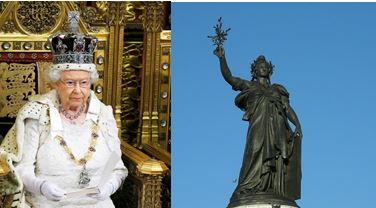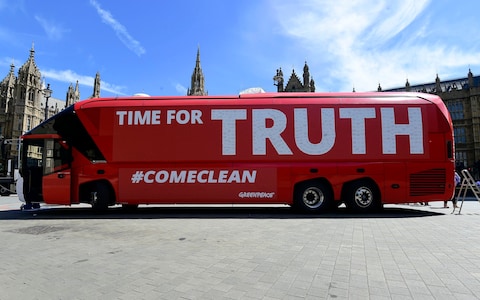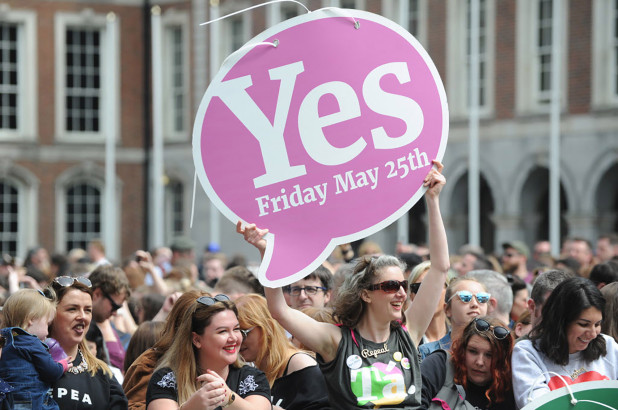-
Two countries
In this post, I shall compare and contrast two mindsets: monarchist and republican mainly by referring to two countries: UK and the Irish Republic. I argue that the former mindset has led the UK to its current post-EU referendum mess and has also led to a terrifying rise in the levels of intolerance. I contend further that the latter mindset has enabled Ireland to escape from the dead hand of the Catholic church to become a modern, secular, tolerant society.
Monarchists and Republicans
First, an important definition, to avoid any misunderstanding. I’m using the word “republican” in the “I want an elected Head of State” sense, rather than the “I’m a moron who voted for Donald Trump” sense. By that definition, it should be clear (from earlier posts) that I’m a republican. But the central point of this post is the sort of thought processes that flow from each position and the views a person is likely to hold.
My starting point comes from the USA, ironically enough – Trump as head of state is unlikely in a monarchy and would be a good argument against my position! I refer, of course, to the US Declaration of Independence and the words “We hold these Truths to be self-evident, that all Men are created equal…” The Declaration continues “…that they are endowed by their Creator with certain unalienable Rights, that among these are Life, Liberty, and the Pursuit of Happiness….” OK, it’s not quite right: “People”, not “Men” for a start. And as an atheist and Humanist, I’d rewrite the bit about “endowed by their Creator”. But the overall thrust is in line with my starting point.
From these principles, it’s easy to see that phrases like “We, the People…” and “the People versus X” (in court cases) follow naturally. In the latter case, I’m contrasting this with “the Crown versus X” used in UK courts.
In monarchies, by contrast, the presumption is that we are not all born equal. Some enjoy privileges (and duties) simply by accidents of birth and of lineage, although the duties are often a matter of custom and convention rather than constitutional principle. The more traditionalist, conservative institutions police these conventions with a fierce conviction. Every democratic and progressive change has been resisted and delayed by a privileged elite.
The UK, Saudi Arabia and Other Monarchies
Any objective-minded person can see immediately how corrupt and bloated the royalty of Saudi Arabia is: I believe there about 7000 people who call themselves Princes and, by any objective measure, Saudi Arabia is the least democratic, worst abuser of Human Rights on the planet. At the other extreme, more “modern” monarchies, such as are found in Scandinavia, have a modest role for their monarchs with a small group of people labelled “royal” leading relatively modest lifestyles.

In some respects, the UK is more like Saudi Arabia than Sweden or Norway. Despite some democratic add-ons, we have a grossly bloated “royal family” (think Andrew – better still, don’t!) and an unelected second chamber in Parliament. Worse still, in the UK, it is possible to buy privileged access to power simply by having rich parents – or connections with the “right” people. The English public school system teaches – at least according to one alumnus – what he called “ESS”, an Effortless Sense of Superiority. From this flows an innate sense of entitlement to tell lesser souls what to do. Of course, the rules don’t apply to you or your rich chums or – better still – the rules (law, taxation) are biased to suit them.
A republican outlook can bring a different set of problems. In the USA, for example, it can lead to an excess of individualism and a cult of the “common man” or woman, no matter how ill-informed they may be. In France, there is a tendency for interest groups to gather together, block highways and generally make a nuisance of themselves. On balance, I’d rather live somewhere with republican-type imperfections than monarchist-type ones.
Distilling all this down, the two forms of government (or of national culture and history) lead to two distinct mindsets. Contrast these: “subject” v “citizen”, concessions reluctantly wrestled from the powerful v Human Rights, lip service v real democratic practices, secrecy v openness, etc.
Two Referendums
I turn now, as a prime example of my general point, to comparing recent events in two countries, one a monarchy, one a republic: the UK and its former colony the Irish Republic. The events are two contrasting referendums: on EU membership in the UK in 2016 and abortion rights in Ireland more recently. The UK referendum is a role model for how not to carry out a referendum and deal with its aftermath. The Irish referendum is a good example of how to do it right.
The UK is still in the thick of the mess caused by holding and mishandling the EU vote. Some obvious conclusions can be drawn so far:
- It has effectively split the country down the middle: England, at least, has been revealed as consisting of two groups who see each other with mutual mistrust and suspicion
- It has had a catastrophic effect on the level of toleration of people whose views differ from each other
- It has encouraged acts of violence by fringe groups, encouraged by politicians’ ill-considered language
- Jo Cox MP was murdered
- It has given Archbigot Arlene Foster and her morally repugnant DUP de facto power far beyond their electoral support
- It has sown the seeds of the destruction of the UK, principally by the Little Englanders’ total indifference to the views of the Scots and (Northern) Irish
- And the economic impact, which has been well rehearsed elsewhere.
Compare this with the comparative ease with which the Irish Republic conducted the abortion referendum and the peaceful implementation of the decision.
The Irish Citizens’ Assembly
I believe a key component of the Irish success has been the creation of the Citizens’ Assembly. For more details on the activities of the Citizens’ Assembly, check out its website here. Briefly, the Assembly was set up in 2016 to inform public debate on a number of strategic issues. The most significant was to abolish the Republic’s 8th Amendment to the Constitution, thereby opening the way to legalise abortion. The Assembly is chaired by Mary Laffoy, a judge in the Irish Supreme Court. The 99 other members are “citizens entitled to vote at a referendum, randomly selected so as to be broadly representative of Irish society”. They worked using a combination of expert presentations, Q&A sessions and debate, roundtable discussion and a plenary session. It was an opportunity to deliberate topics, in an informed way, in marked contrast to the soundbite dominated shouting match which constitute much of modern political “debate”.
From these deliberations, the wording of the referendum question to be put to the Irish electorate was formulated. The Irish Parliament took great care to ensure the electorate was as well-informed as possible before the vote. Although the Cameron government consulted the Electoral Commission for expert advice on the wording, the whole process was much more “top down” than the Irish case.
I believe that this was no coincidence. A republican mindset is far more likely to produce solutions which are “bottom up”; a monarchist mindset is far more likely to impose “top down” ones.
The People’s Vote
So, where does this leave us, going forward? It’s far too soon to say what might emerge from the current mess and Parliament’s “meaningful vote” (if that goes ahead next week). One possibility is another referendum, the People’s Vote, notwithstanding the problems caused by the 2016 one and referendums’ poor fit with the UK convention of Parliamentary sovereignty.
Back in February last year, I came very close to writing a blog post satirising a People’s Vote, to which I was at the time opposed. I have changed my views since then: a People’s Vote may be our only chance to avert catastrophe. If such a vote were to go ahead, I would strongly advocate some form of Citizen’s Assembly to inform the wording of the question(s) to be posed. All of this would take time and require the Article 50 process to be suspended. There are many who would be bitterly opposed to this, but I say that’s their problem: the issues are to important not to get this right.
Two (or Three?) Barriers
There are two, or possibly three, barriers to this happening. Theresa May has ruled this out (though who believes anything she says any more?). Any likely Tory successor would only make the chances worse. Second, delaying Article 50 needs the agreement of 27 other countries. And the third, possible, barrier? Jeremy Corbyn.
Towards a Democratic UK
But let’s just be optimistic for a moment. It’s not impossible that a People’s Vote will occur in the way I have described. And that we are spared the disaster of crashing out of the EU. Surely then, the time will be right to question our entire semi-democratic, ramshackle constitutional setup. My “best case” wish list would be something like this:
- Democratise the House of Lords into an elected Senate;
- Specify what role, if any, referendums have in our democratic arrangements;
- Review our adversarial first-past-the-post voting system;
- Move to an elected Head of State using (again) the Irish system as a possible role model
And of course, demand of any political party that puts itself up for election as a future government to play a fully engaged, constructive role as a member of the EU. That includes making a clear case for the benefits – both to the UK and to the other member states – of EU membership. Infantile heckling of the EU and its institutions from the sidelines must become a thing of the past.


